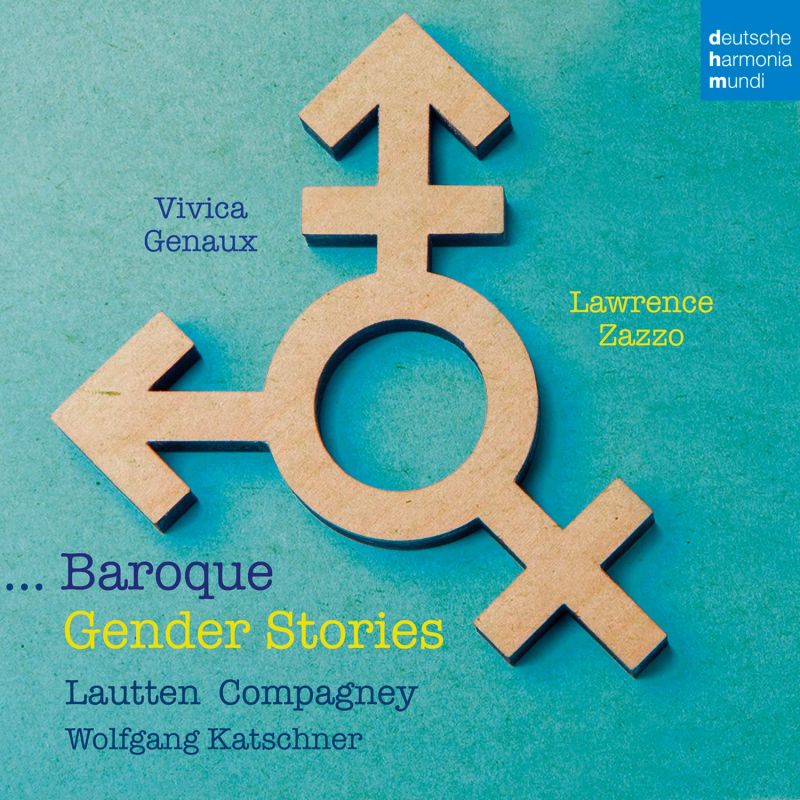Baroque Gender Stories (Vivica Genaux; Lawrence Zazzo)
View record and artist detailsRecord and Artist Details
Genre:
Vocal
Label: Deutsche Harmonia Mundi
Magazine Review Date: 12/2019
Media Format: CD or Download
Media Runtime: 87
Mastering:
DDD
Catalogue Number: 19075943092

Author: David Vickers
Zazzo sings Amastre’s wistful ‘Cagion son io’ (Handel’s Serse) and Bradamante’s furious ‘È gelosia’ (Handel’s Alcina) – both female characters disguised as men that the countertenor is unlikely to perform on stage. On the other hand, Genaux’s propulsive ‘Nel profondo cieco mondo’ from Vivaldi’s Orlando furioso sounds as if her unstable title-hero belongs on stage. These are heard in context alongside much less familiar music. Zazzo’s spirited enactment of Tamiri’s ‘Tu mi disprezzi’ from Lampugnani’s setting of Metastasio’s libretto Semiramide riconosciuta (Rome, 1741) is juxtaposed directly with Genaux’s gentle dialogue with soft pastoral flutes and horns in Semiramide’s ‘Il pastor se torna aprile’ from Porpora’s version revived at Naples in 1739. Metastasio’s drama Siroe, re di Persia forms a strand throughout proceedings: there is a buoyant sinfonia featuring horns from Hasse’s 1733 setting, Genaux’s energetic accounts of Emira’s furious outbursts composed by Galuppi (1754) and Traetta (1767), Zazzo’s pathos-laden singing as the imprisoned hero in Handel’s version (1728), and his limpid singing in two arias by Wagenseil (1748) – one for the primo uomo and another for the prima donna.
Wolfgang Katschner and Lautten Compagney provide lean, skilfully balanced and astute theatrical support. Clever artistic programming means that each half starts with a striking overture and culminates in an engaging duet, via a series of vividly contrasting musical styles, orchestral colours, speeds and moods.
Discover the world's largest classical music catalogue with Presto Music.

Gramophone Digital Club
- Digital Edition
- Digital Archive
- Reviews Database
- Full website access
From £8.75 / month
Subscribe
Gramophone Full Club
- Print Edition
- Digital Edition
- Digital Archive
- Reviews Database
- Full website access
From £11.00 / month
Subscribe
If you are a library, university or other organisation that would be interested in an institutional subscription to Gramophone please click here for further information.




